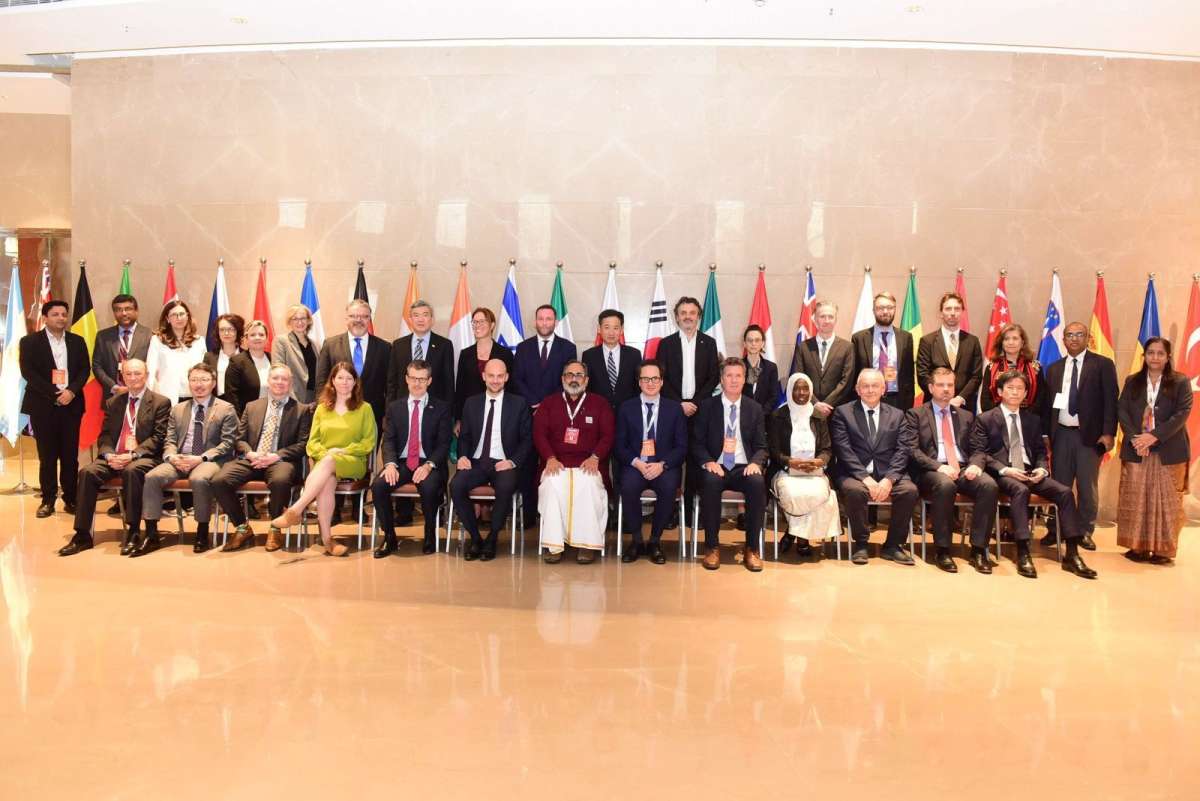The Declaration is focused on harnessing new opportunities and mitigating the risks arising from the development, deployment and use of AI…reports Asian Lite News
The New Delhi declaration of the Global Partnership on Artificial Intelligence (GPAI), unanimously adopted by 28 countries on Wednesday, is focused on harnessing new opportunities and mitigating the risks arising from the development, deployment and use of AI.
This includes concerns around misinformation and disinformation, unemployment, lack of transparency and fairness, protection of intellectual property and personal data, and threats to human rights and democratic values.
The GPAI member countries further affirmed their commitment to continue to work within their respective jurisdictions to advance safe, secure, and trustworthy AI, including, as appropriate, through the development of relevant regulations, policies, standards, and other initiatives.
“We acknowledge the noteworthy progress and achievements under the leadership of Japan as the 2023 Lead Chair with India as the Incoming Support Chair and France as the Outgoing Support Chair. This includes significant efforts related to the strengthening of GPAI as a diverse and inclusive multi-stakeholder initiative,” read the final declaration.
The consensus on the declaration was arrived at after about a 5-hour ministerial council meeting.
“All countries unanimously adopted the New Delhi declaration. The declaration promises to position GPAI at the forefront of shaping AI in terms of innovation and collaboration, increasing applications of AI in healthcare, agriculture and other areas of concern,” said Minister for State for Electronics and IT, Rajeev Chandrasekhar.
The declaration supported the intention of India to promote collaborative AI for global partnership among GPAI members by supporting projects aimed at promoting equitable access to critical resources for AI research and innovation, such as AI computing, high quality diverse datasets, algorithms, software, testbeds, and other AI-relevant resources in compliance with applicable intellectual property protections and data protection legislations.
“We support the development, in a collaborative manner, of necessary knowledge, skills, infrastructure, policies, risk management frameworks and governance mechanisms to effectively and responsibly leverage AI technologies and applications, including among low and middle-income countries to harness the potential of AI advancements and manage the associated risks, including ensuring robust protection of rights, safety, and security,” the declaration emphasised.
The GPAI has ensured that AI becomes a kinetic enabler for millions of people with clear and accountable guardrails.
‘Need to bridge huge talent deficit’
There is a serious need for the tech industry and academic institutions to work along with the governments globally in shaping the future pipeline of talent for artificial intelligence (AI)-related jobs, Minister Rajeev Chandrasekhar said.
Addressing a fireside chat session on the second day of the Global Partnership on Artificial Intelligence (GPAI) summit in the capital, the minister said that nurturing talent is something that governments can help but certainly cannot play a lead role, and industry and the academicians have to work together for the jobs of the future.
“It is clear that there is going to be a huge talent deficit in the field of AI. There is an urgent need for our academic institutions, whether in the UK, Japan or India, to really understand this and start delivering the talent that this AI ecosystem will require,” Chandrasekhar told the gathering.
The potential economic value from AI tools could be as high as $26 trillion going forward, according to McKinsey data.
“Unfortunately, a major limiting factor in AI reaching its full business potential is the availability of individuals with the right skills and capabilities to continue innovating AI,” according to McKinsey.
According to the minister, the AI industry needs cutting-edge talent, architects and designers of large-language models (LLMs).
“As we go down this AI road, there’ll be more and more complexities and capabilities that we need talent for. So I think it is almost central to this whole strategy that we are evolving as a group of nations that we have a talent pool that is out there building these capabilities for,” said Chandrasekhar.
To create such a talent pool, the academy networks of various countries and industries have to work together.
“Align the coursework, align the curriculum and educate for future-ready jobs with future-ready skills rather than look back and extrapolate,” the minister noted.
There are 45,000 Artificial Intelligence (AI) job openings in India, with data scientists and Machine Learning (ML) engineers being among the most sought-after careers, according to a latest report by TeamLease Digital, a tech staffing firm.
Nasscom said recently that India currently ranks first in terms of AI skill penetration and AI talent concentration, the AI skill shortage is now being felt across the spectrum.
ALSO READ-European Council and Parliament strike deal on first rules for AI

Leave a Reply